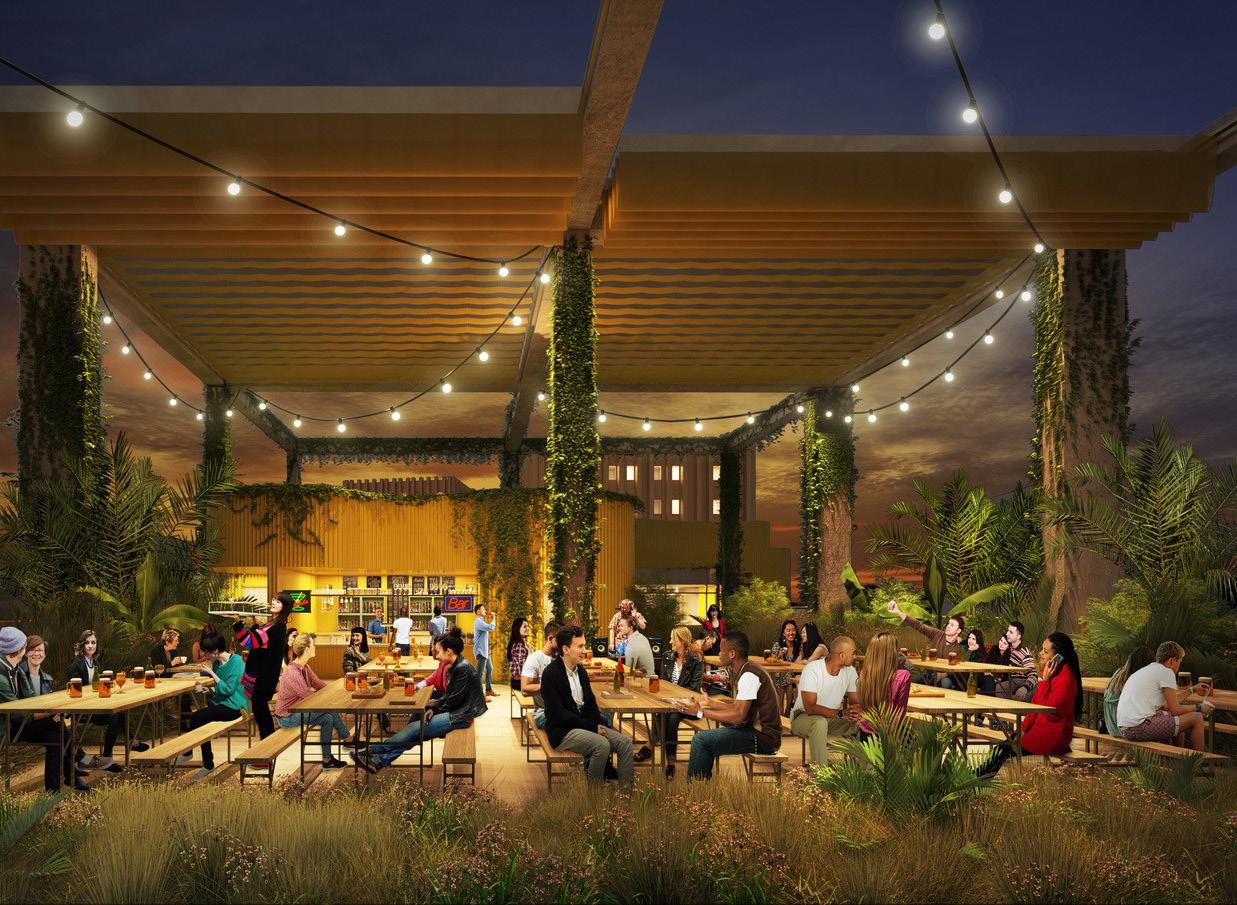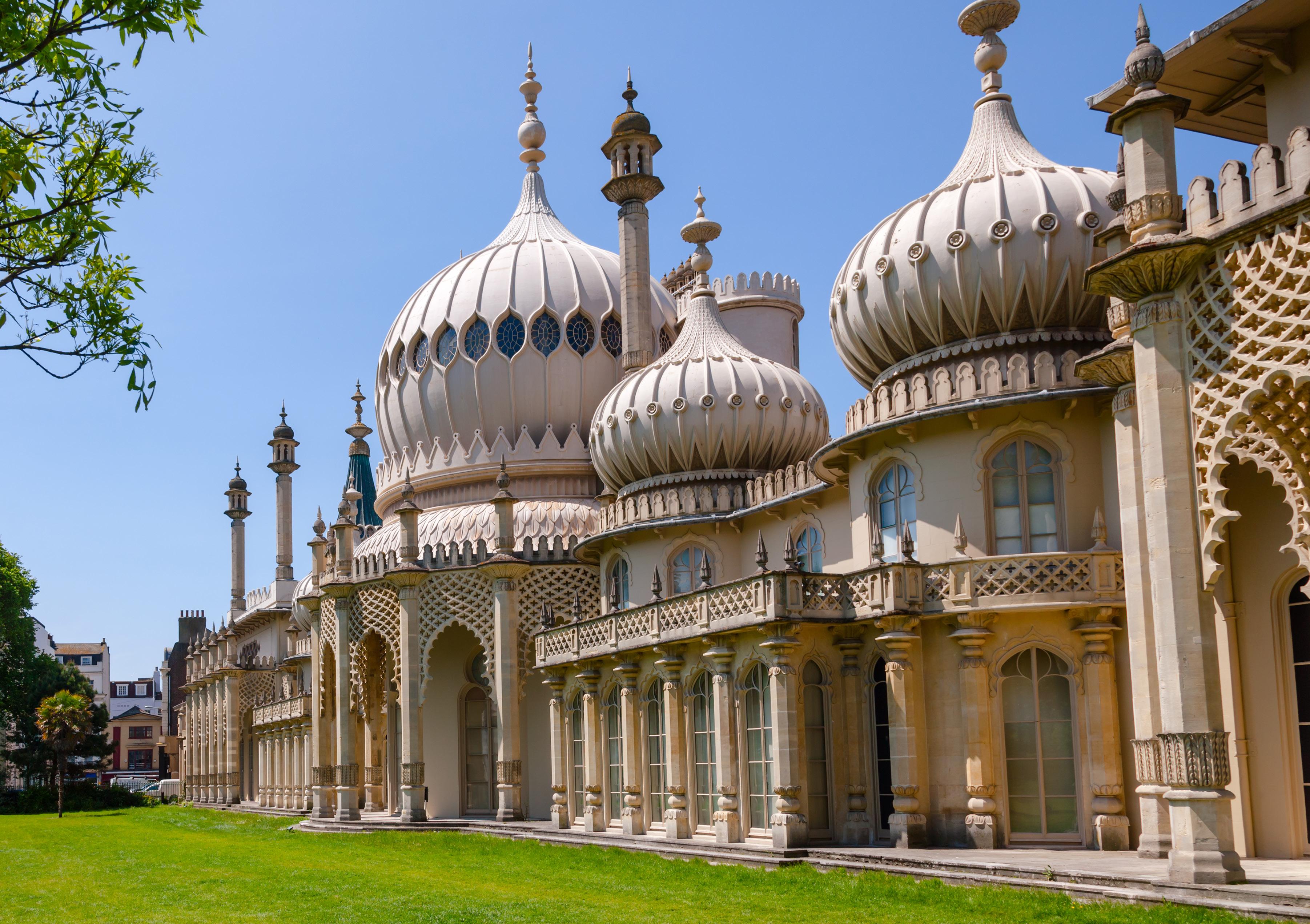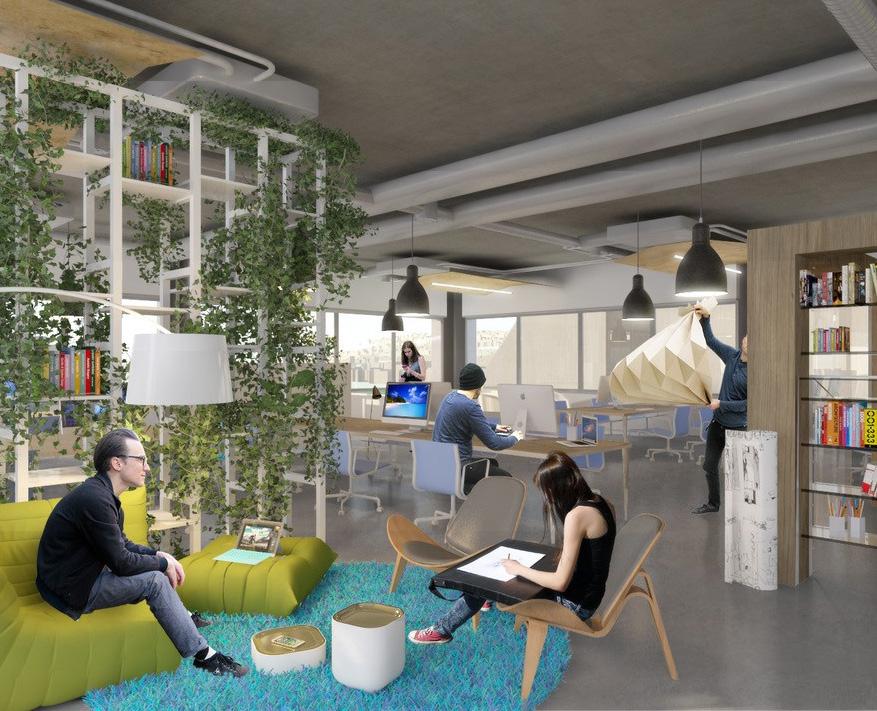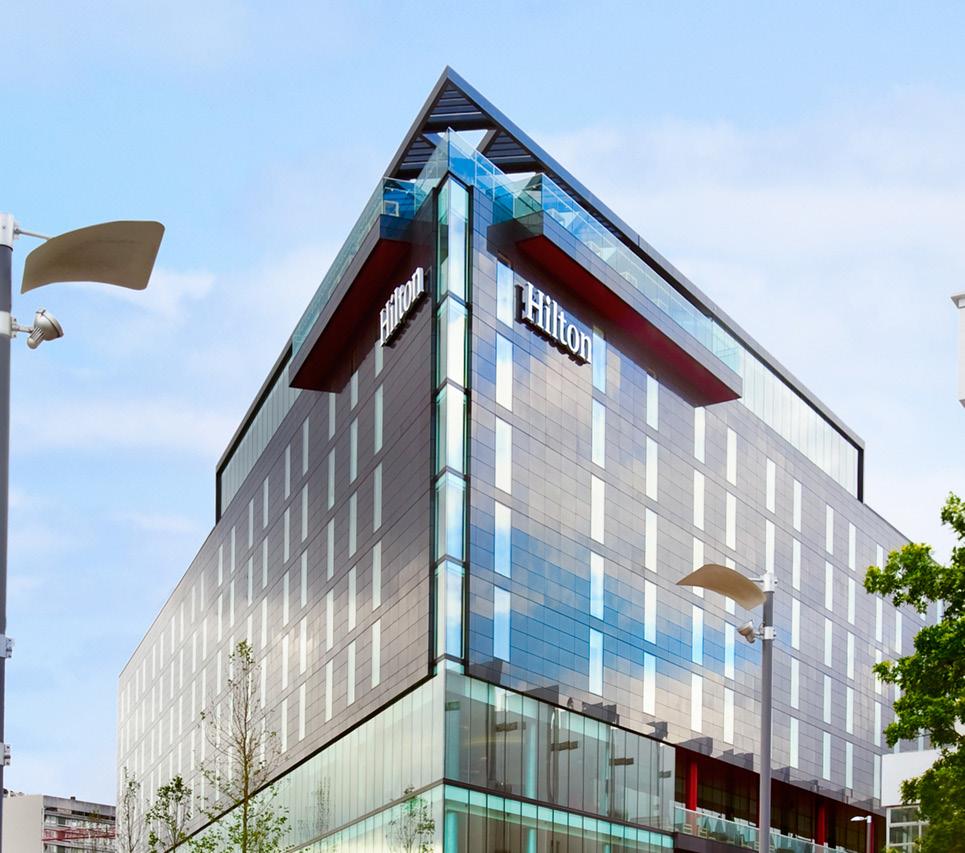
12 minute read
Feature: Brighton
Brighton: A ‘collaborative city with no shortage of talent’
Well-educated, tech-savvy, creative, tolerant and talented… positive adjectives for Brighton and its inhabitants trip readily off the tongue from experts keen to wax lyrical about its many strengths. In the latest feature in Business Leader’s city spotlight series, we learn more about why Brighton is a city which has entered the new decade bursting with confidence and ‘speaking with its own unique voice’…
What is unique about Brighton as a place to do business? Gavin Stewart, Executive Director of Brighton & Hove Economic Partnership, said: “Nestled between the South Downs and sea, Brighton & Hove has long been a place of escape. In fact, anecdotally, it’s known as the place where 30-somethings come to retire. Not from work I might add, but from the rat race. “Brighton & Hove has one of the highest business start-ups per capita in the country (second only to London according to the
56 most recent Centre for Cities report). It also has a relative failure rate, but that only serves to exemplify the feeling of freedom that many entrepreneurs have here; freedom to experiment, freedom to disrupt and the freedom to dream.
“If you are looking for a well-educated workforce, you’ll also find them here because we are in the top ten UK cities with the highest number of residents with NVQ4 or above.
“But it’s what’s on offer outside of work that continues to attract people to the city – with one of the most diverse arts calendars in the country (Brighton Fringe Festival is one of the three largest in the world) to sports events (one football team in the Premier League) as well as live music, conferencing, indi-retail, and of course Pride. “There are many places that would bite off Brighton & Hove’s arm for just a handful of the riches on offer to nourish and embolden even the most tentative entrepreneur.”
Gavin Stewart Amy Lishman Olga Hopton



Amy Lishman, Head of Member Engagement at Brighton & Hove Chamber of Commerce, said: “There are more than 16,000 businesses in Brighton according to the latest data from Brighton & Hove Economic Strategy, with more and more new businesses emerging each year. It’s no wonder that Brighton consistently features on lists of the best places to start and develop a business. “The unique combination of an active business support ecosystem, the culture of collaboration and connections, and the people who make things happen here is what makes Brighton one of the best places in the UK to run a business.” Olga Hopton, Managing Director of Brighton’s new innovation hub Plus X Brighton at Preston Barracks, said: “Brighton & Hove is an exciting and vibrant city, with two excellent universities and plenty of talented people, making it the perfect place for us to open Plus X Brighton, an innovation hub and centre of collaboration for entrepreneurs, start-ups, scale-ups and corporations across a range of industry sectors. “We recently held the Plus X Brighton Disruptors competition, looking for talented eco-inventors working on concepts that drive sustainability. The winner, Lucy Hughes – who also won the James Dyson Award – will be developing her alternative to single use plastic, Marinatex at Plus X Brighton, making her one of our exciting first founder members.”
Gavin Stewart
Richard Upton, Director and Chief Development Officer at U+I, a firm charged with redeveloping major parts of Brighton, said: “The city is unique in the way that Brighton & Hove City Council is open to working with private sector partners in creative ways to unlock land and deliver homes, jobs and community facilities. Public/private partnerships are so fundamental to successful urban regeneration and Brighton is a shining example of how this can be done well.” What are the strengths and weaknesses of the city from a business perspective? Lishman: “Entrepreneurship is alive and well in Brighton. It might be the sea air, or the progressive, open-mindedness of the city that allows ideas and innovation to flourish. There are some impressive entrepreneurs making waves in Brighton and they are leading the way so that others can start up and grow. “Brighton is a collaborative city. If you’re looking for people to work with, there is no shortage of talent to help you with whatever you need to see your business grow, whether it’s digital marketing, designers or finance support. “Businesses here are well-served by a comprehensive ecosystem of support, whether you’re a start-up, an established company or looking to scale.
“Organisations like Brighton Chamber provide networking and learning opportunities, including the popular Catch the Wave support series. Wired Sussex supports businesses in the digital and tech sector, while Barclays Eagle Labs and the Sussex Innovation Centre offer workspace and support to encourage growth. “Networking plays a big role in connecting people with each other across the city with over 40 different networking groups in the area. Making connections is essential for any business to thrive, whether it be for peer support, getting new business or simply keeping up with what’s happening in Brighton. “The emergence of innovative co-working spaces has nurtured this collaborative spirit. From PLATFR9M who opened their third space in Hove Town Hall in 2018, to the brand-new Plus X opening in 2020 on Lewes Road, there is no shortage of fun, creative spaces to meet and share business ideas.” Stewart: “One of the major strengths of the city is its diversity. Through a business lens, it’s inspiring to see the collaborations that are possible between sectors. In Brighton, the CDIT Sector (Creative, Digital & IT) has grown by over 40% in the last five years. Given that this sector didn’t even exist ten

58 years ago, it’s even more impressive to hear that it now stands almost shoulder to shoulder with the tourism sector in the city, which has been our bread and butter for centuries. “But it’s the ability for individuals to easily collaborate here that really shows the possibilities for that disruptive, experimental spirit. Brighton’s 5G testbed at the Fusebox is one of the only places where digital entrepreneurs (not academics) can test out the tech, ready to be at the vanguard of fourth industrial revolution.” Upton: “Brighton is a fantastic example of a city with ‘the four Ts’: top talent, steady tourism, good transport links and tolerance for diversity. These are the major drivers of economic growth that we look for wherever we do business.” Hopton: “Brighton is full of exciting businesses, but the right kind of workspace is hard to find. We hope Plus X Brighton, opening in March, will offer a truly original innovation hub and inspiring work space. Our unique formula drives innovation and prosperity through world-class architectural design, product-making workshop and facilities, expert business support, strong partnerships through curated collaboration and a building designed for positive productivity, wellness and wellbeing.”
Artists impression of Plus X, Brighton Richard Upton


Which sectors are traditionally strong in Brighton – and how has that changed in more recent years? In which industries is future growth expected? Stewart: “The largest sector in the city (by far) is still the public sector, followed by the financial sector, then tourism. With the burgeoning CDIT sector, we are expecting to see significant growth over the coming years, but also around life sciences and engineering, driven by the two universities. Given the importance of the financial sector in the city, it will be interesting to see if there will be any impact here from decisions over the next 11 months which may affect the city of London.” Lishman: “While Brighton is known for its digital, tech, IT and creative industries, other sectors like food and drink are on the rise, with brands like Brighton Gin and Bird & Blend Tea Co thriving in Brighton and beyond.” Hopton: “The digital sector has been strong for at least a decade in Brighton, but we are seeing a rise in innovative product design and some really exciting ideas to address our effect on the environment. We expect
Brighton Pavilion

this trend to continue and would like to see Brighton become a world leader in terms of creating environmental solutions for the future of planet Earth.”
Upton: “Brighton has an incredibly diverse appeal, but in recent years we have seen a real boom in demand for SMEs looking for inspiring workspaces. This is why we will soon be opening the first Plus X innovation hub at Preston Barracks. Going beyond the offer of mainstream co-working providers, Plus X provides state-of-the-art workshops, biolabs and digital media studios, with leading technology and equipment to enable residents to develop concepts and create product prototypes.
“These spaces will be fundamental to supporting Brighton’s entrepreneurs, startups and scale-ups, and putting the city at the forefront of the tech industry.” What are the main challenges and opportunities when it comes to evolving Brighton from an economic perspective? Stewart: “Unequivocally space. Brighton & Hove is a popular place. People want to come here. The city gets over 11 million visitors a year, so for a city with only 290,000-plus residents, it swells to quite unrecognisable levels at times.
Richard Upton
“House prices are unaffordable for most locals, and a lack of brownfield sites means there is inevitably a viability battle between much-needed office accommodation over creating places to live. The latter of course, giving the developer much more bang for their buck. “This is partly why the city has worked with neighbouring authorities to develop the Greater Brighton Economic Board to help deliver the infrastructure needed to grow and develop. So far, it has brought in £150m to support local communities and its ambitions don’t stop there, with more investment planned in infrastructure and transport, as well as the creation of a region-wide Inward Investment Desk to sell the whole area and help spread out some of the success that Brighton & Hove has experienced.”
Cont.
Artists impression of Plus X, Brighton

Hopton: “World-class workspace for local businesses is in short supply, and the city has in the past lost some great businesses because of it. We need better space, support and facilities for a whole range of current and developing business enterprises from start-ups to scale-ups.” What does the future hold for the city? What developments are planned and how will they impact the area? Upton: “At both Preston Barracks and Circus Street, we’re creating new neighbourhoods that will inject even more life into Brighton. As one of the city’s largest regeneration projects, Preston Barracks will create thriving space for local businesses, creating over 1,500 jobs and generating over £280m for the local economy. “But equally as important, it will be home to hundreds of people, whether couples, families or students – creating a complete new neighbourhood.
Olga Hopton
Preston Barracks

“At Circus Street, we’re transforming the derelict municipal market into an innovation quarter with homes, student accommodation, offices, workshops and arts space. By doing so, we’re forming a sustainable, productive, healthy model of city life with great public spaces, a lively, creative atmosphere and a real sense of community.”
Lishman: “In 2018 Brighton was voted the best place to start a small business and I think that trend is set to continue, if the number of businesses joining the Chamber in 2019 is anything to go by!”
Stewart: “With major redevelopments already under way, like the Royal Sussex County Hospital, Preston Barracks, Circus Street, University of Brighton and Edward Street Quarter, there’s already a huge investment in health, the arts and our intellectual capital, as well as muchneeded housing and business space.
“The redevelopment of the Brighton Centre, to secure our long-term future as a conferencing centre of the future, also sits on the horizon. There is a new confidence in Brighton & Hove, a city speaking with its own unique voice, ready to enter the next decade with an aspirational attitude whilst still remembering how to let its hair down.”
Amy Lishman
BRIGHTON BUSINESS FACT FILE
• Brighton & Hove is home to 16,000 businesses and 140,000 jobs – with 2,700 of those businesses launched since 2012 and 14,300 jobs created since 2011. • Around 57,000 Brighton jobs – or 41% of the total workforce – are based within the knowledge economy. • ICT and digital business is growing fast. The sector is home to around 1,500 businesses and 6,800 jobs – numbers that have grown by 40% in five years. • The city is one of the UK’s strongest for exports. Its export earnings amount to £12,000 per job, beaten only by London and Edinburgh. • Not everything is rosy. Productivity of £65,000 is lower than competitor cities like Reading, Milton Keynes and Cambridge, while unemployment levels are above average, with youth unemployment a particular issue at 16%.
Business Leader launches
Connecting and inspiring

entrepreneurs
The new scale-up conference announced for entrepreneurs

JUNE 25 TH 2020 HILTON HOTEL WEMBLEY
LEADING TRENDS TO BE DISCUSSED
MARKET TRENDS FINANCE & FUNDING WORKFORCE & HR PROPERTY & OPERATIONS EXPORT & TRADE










